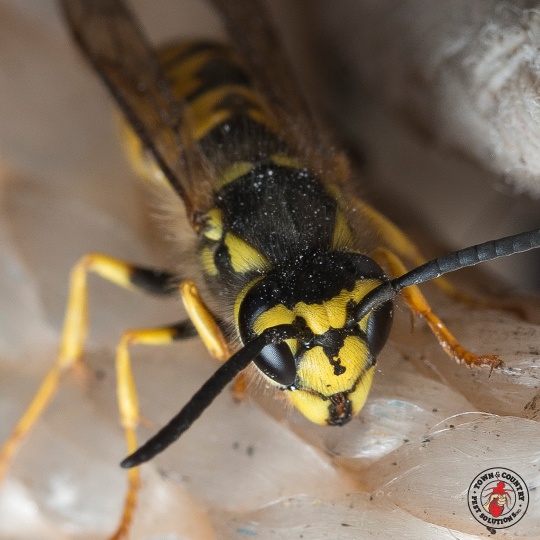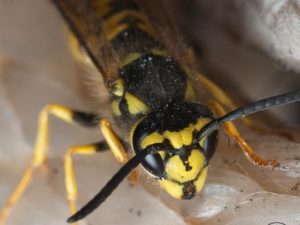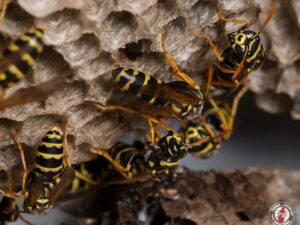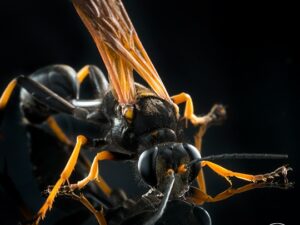
There are several insect species out there that live in colonies, with each member performing its role. Wasps can live in nests as well, and the species that we are most familiar with during infestations are social wasps. However, there are also wasps that are solitary, living on their own, in smaller nests. So what drives wasps to build their nests exactly?
Social wasps
Most social wasp species are not very picky when it comes to finding the right location to build a nest. All it has to be is dry, structurally sound and somewhat safe. You will usually find these nests inside rock crevices, hollow trees or human structures, with some species even nesting underground.
The building process begins after a wasp queen wakes up from hibernation during the winter. It will use wood that it mixes with saliva in order to turn it into a pulp that can be molded into a structure. The queen will then lay eggs inside the cells of the nest, which will hatch into the first batch of worker wasps. When these workers reach adulthood, they will start to forage for food and build the nest themselves. The queen is then freed up to lay as many eggs as possible.
As the number of wasps in a colony grows, so does the number of cells, with workers constantly expanding the colony. Each species will choose different structures, and the role of the nest is to help with the reproduction of the species.
Solitary wasps
While some wasp species are social, others are solitary. These wasps will build much simpler nests for their young. For example, Tarantula hawks, which is a solitary wasp species, will have an underground hole, where it will drag a tarantula that it paralyzes with its venom. Once inside the nest, the wasp will lay its egg inside the tarantula, and when the eggs hatch, the larva will feed on the spider’s body. Sometimes, the wasp will not even bother with building the nest. Instead, it will go into the spider’s den and perform the whole ritual inside it.
So this is why wasps build their nest – to rear their young, and since this is a very important task, they can get very territorial and aggressive when someone goes near them. This is why you want to get rid of any nest that pops up on your property. Contact us today if you have a wasp infestation and you need professional help to get rid of it.












